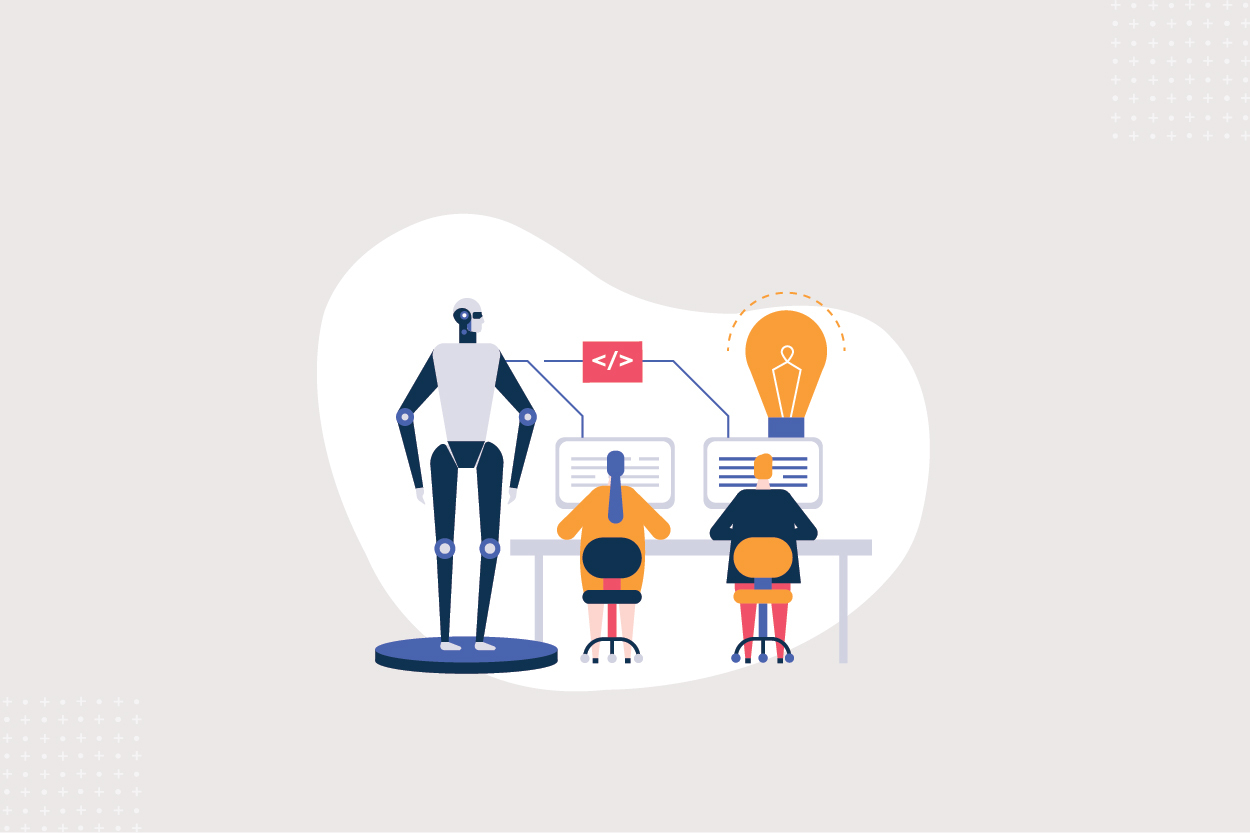Introduction
Cloud computing services have evolved beyond platforms like Google App Engine and Azure to Infrastructure, which includes the provision of processing and storage units. In addition, cloud companies provide data platform services that span the many databases available. This development chain points to the expansion of Artificial Intelligence and Cloud Computing.
What exactly is Artificial Intelligence (AI)?
Artificial intelligence, abbreviated as AI, simulates intelligence in machines. The word alludes to the ultimate result of imbuing robots with human-like intellectual capabilities, such as the ability to reason, learn from history, uncover meaning, or generalise.
It is predicated on the idea that human intelligence may be characterised so accurately that a machine can replicate it. As a result, these machines are trained to “think” like people and mimic their activities and reactions to various situations.
What Kinds of Cloud Application Development Services Are There?
• IaaS (Infrastructure-as-a-Service) (IaaS)
This is the most popular cloud app development service among users. It lets you pay based on how often you use the services supplied, making it a truly flexible plan. Storage, networks, operating systems, servers, and virtual machines are among the services offered (VMs).
• PaaS (Platform-as-a-Service) (PaaS)
This service was created to make web development and mobile app design easier by including an infrastructure of servers, networks, databases, and storage that reduces the need to update or handle them constantly.
• SaaS (Software-as-a-Service) (SaaS)
The cloud provider, not the user, is in charge of management and maintenance in this case, and all the user needs to do to acquire access is connected to the programme through the internet using a web browser on his phone, tablet, or PC. The SaaS is accessible over the internet on a pay-per-use or subscription basis.
Cloud Deployment Types
• The Public Cloud
The cloud provider owns and controls the hardware, software, and other supporting infrastructures for public clouds such as Microsoft Azure and is responsible for distributing computing resources – servers, storage – via the internet. You acquire access to these services and manage your account as a user by using a web browser.
• Private Cloud
A private cloud’s services and infrastructure, as the name indicates, are managed on a private network by the provider or a third-party service provider. It is only utilised by one organisation and is sometimes housed in the company’s on-site data centre.
What have the outcomes of the AI-cloud computing fusion been thus far?
Cloud Computing AI Infrastructure
When a huge amount of data is given to particular algorithms, we may develop Machine Learning (ML) models, and it is critical to use the cloud for this. The models may learn from the many patterns discovered in the provided data.
As more data is added to this model, the prediction improves, and the accuracy improves. For example, hundreds of radiological data are utilised for training ML models that spot cancers. Because it may be changed based on the project’s demands, any industry can use this design. The needed input is data, which can be in many formats, such as raw, unstructured, etc.
Because new processing techniques necessitate both CPUs and GPUs, cloud companies increasingly provide virtual machines with highly powerful GPUs. Furthermore, machine learning processes are now being automated through batch processing, serverless computing, and container orchestration services. IaaS also aids in the management of predictive analytics.
AI Services for Cloud Computing
Even without developing a unique ML model, it is feasible to enjoy services similar to those given by AI systems. Text analytics, audio analytics, visual analytics, and machine language translation, for example, are available to developers. Therefore, they may easily include this into their development efforts.
Although these services are broad and not targeted to specific needs, cloud computing companies take measures to ensure that they are continually enhanced. For example, cognitive computing is a concept that allows users to give individualised data that can be trained to offer well-defined services. This eliminates the challenge of locating a suitable algorithm or training model.
Benefits of Leveraging AI and Cloud Computing
Cost-EffectivenessCost-Effectiveness
Because cloud application development is available through the internet, it removes the requirement for on-site gear and software purchases and setup. It also eliminates the need for on-site data centres and the associated costs – IT professionals to administer the centres, servers, and round-the-clock electricity to power and cool the servers.
Productivity has increased.
Unlike a hard drive or local storage device, which necessitates several IT administration tasks such as hardware installation, software patching, racking, and stacking, cloud computing is entirely internet-based and hence eliminates the need for these. This frees up time for the IT staff to focus on other business objectives.
Reliability
The danger of damage increases when using a hard disc or physically accessible infrastructure. One risks the possibility of a crash, lost files, backup failure, and a slew of other issues. On the other hand, cloud computing solutions provide company continuity, faster and easier disaster recovery, and simpler data backup.
Advanced Infrastructure is available.
AI programmes run at high speeds on servers with many highly powerful Graphics Processing Units (GPUs). These solutions, however, are exceedingly costly and out of reach for many enterprises. Therefore, as a service in cloud application development, AI becomes more inexpensive to these enterprises.
Conclusion
The top cloud computing firms on Reputedfirms are certain that the convergence of cloud computing services and AI technology will usher in a sea shift in the technology sector. Public cloud providers continue to invest in the advancement of AI, which will continue to attract the right clients to this technology. Even though the technology is still in its early stages, progress is unavoidable, and we may anticipate great improvements in the future.
